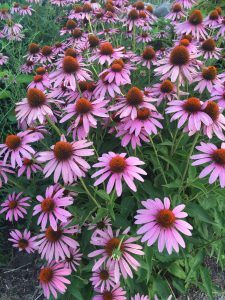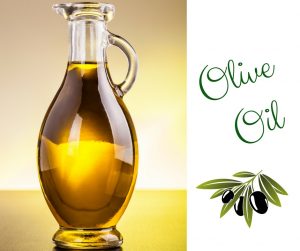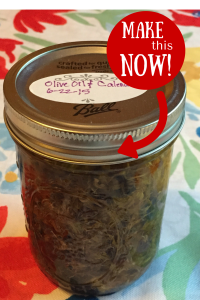Essential Oils in the Bible, Part 1
Three years ago a friend told me about an essential oil party she was having and wondered if I’d like to see a catalog.
As I paged through the catalog and researched the oils, I became more and more interested in their potential for health and wellness. Instead of signing up with the MLM company, however, I decided to study in the wellness field to become a certified aromatherapist. When I told another friend about what I was thinking, she asked this question:
“Are you sure you want to do this?” Isn’t there a lot of ‘weirdness’ associated with aromatherapy?” she said..
What’s the Buzz About Essential Oils?
Maybe like me you’ve heard all the buzz about essential oils and you’re wondering if this type of alternative practice is something you should be doing. Just the word “alternative” makes you kind of nervous, doesn’t it?
Today, essential oils are hugely popular. It seems almost everyone uses them—and not always in ways that are safe—but that’s a topic for another blog. Over the next few blog posts, I want to look at healing oils of the Bible to see how they were used in ancient times and what that means for us today. Is this a good practice for us?
This was the question I had to answer for myself, and I’ll take you through the process and some of my research.
We’ll start our research of oils of the Bible by considering these four verses:
Then God said, “Let the earth bring forth grass, the herb that yields seed, and the fruit tree that yields fruit according to its kind, whose seed is in itself, on the earth;” and it was so. Genesis 1:11
And the earth brought forth grass, the herb that yields seed according to its kind, and the tree that yields fruit, whose seed is in itself according to its kind. And God saw that it was good. Genesis 1:12
And God said, “See, I have given you every herb that yields seed which is on the face of all the earth, and every tree whose fruit yields seed; to you it shall be for food.” Genesis 1:29
Along the bank of the river, on this side and that, will grow all kinds of trees used for food; their leaves will not wither, and their fruit will not fail. They will bear fruit every month, because their water flows from the sanctuary. Their fruit will be for food, and their leaves for medicine. Ezekiel 47:12
God Creates Plants on Day 3 of Creation
 In the Bible we see that God creates plants on Day 3 of creation. From science we know that essential oils are present in different parts of plants: seeds, flowers, leaves, roots, bark, wood, needles, berries/fruit, moss, twigs, stems, and rinds, depending upon the plant.
In the Bible we see that God creates plants on Day 3 of creation. From science we know that essential oils are present in different parts of plants: seeds, flowers, leaves, roots, bark, wood, needles, berries/fruit, moss, twigs, stems, and rinds, depending upon the plant.
These verses make it clear that God said trees and herbs and plants (and the essential oils that are in them) were very good, and He gave them to us for our good. He couldn’t be any clearer.
Now keep in mind, that during Old Testament times, most likely the botanicals were not used as essential oils. It is widely believed the process of distillation was not invented then, although that is now even in dispute. Until recently it was thought that distillation was not invented until around 900 AD, but according to an article on distillation by The Aromatic Plant Project, an expedition to Pakistan in 1975 discovered a terra-cotta distillation apparatus dating to 3000 BC in the archaeological museum at Taxila.
The first known distillation of plant material, however, is not recorded until much, much later. It is credited to Persian physician, Ibn Cina, who was known in Europe as Avicenna. He lived from 980 to 1037 AD. So in Bible times people would extract the medicinal benefits of plant material in ways other than distillation:
- infusing the resins and plants in a carrier oil (like olive oil)

- by grinding them into a powder
- by eating the fruit/plant to get its healing benefits
- by using the material in a poultice
From these verses we can see the following facts:
- God commanded the earth to grow grass, herbs, and trees.
- The earth obeyed God’s command and brought forth those things.
- God saw that this was good.
- God gave us every herb and tree for food.
- God said to use the leaves for medicine.
Getting back to my personal story, at this point I was thoroughly convinced that botanicals are inherently good, and I began my studies in the field of aromatherapy.
But What About …
Do some people use botanicals in ways contrary to how God designed them? Absolutely. Some healing schools believe plants have spirits and treat them accordingly and almost worship the created rather than the Creator. But that does not mean we need to avoid using essential oils for health and wellness. If we applied that faulty logic to every gift God has given us and quit using it because someone is using it in a way that is sinful or contrary to how God created it, then there wouldn’t be much left to use! Consider food, drugs, sex, and so on, all gifts from God, all of which have been abused. The abuse does not make the gift bad.
Since we have established the inherent goodness of botanicals and essential oils, in the next blog post, we’ll look at how they were used in the Bible for sacred use, personal use, commercially, and for gifts.
Let me know what you think. Have you ever had any doubts about using essential oils?
Botanically me,
Join me for Essential Oils in the Bible, Part 2


